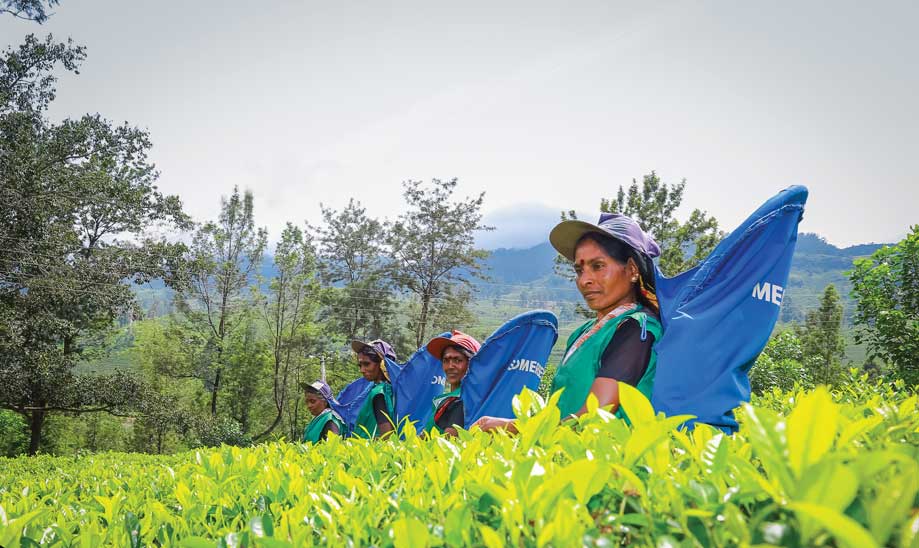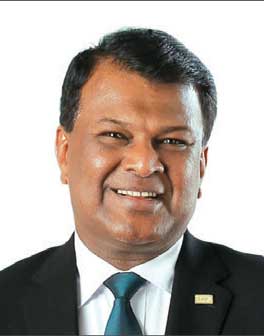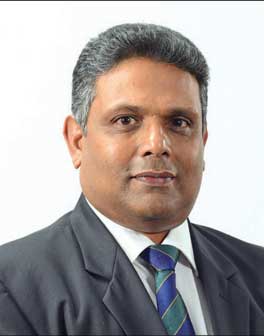TALAWAKELLE TEA ESTATES
Q: Could you provide an overview of what makes Ceylon Tea desirable to palates from across the world?
 A: The legacy of Ceylon Tea can be traced back to British colonial times. This was a period when Sri Lanka and India enjoyed dominant stakes in the international tea market as they were colonies of the empire that had established a monopoly.
A: The legacy of Ceylon Tea can be traced back to British colonial times. This was a period when Sri Lanka and India enjoyed dominant stakes in the international tea market as they were colonies of the empire that had established a monopoly.
Over the years, India gradually began to consume a majority of its production thereby leaving minimal quantities to be sold in the global market. In contrast, only around 10 percent of Sri Lanka’s production is used for domestic consumption while the balance is exported.
Tea is generally seen as a homogeneous product but a large share of the international market is flooded with variants that are similar in terms of taste and texture.
For example, in countries such as Kenya and India, a tea estate can cover an area of 3,000 hectares. In such instances, the tea leaves collected from one end of the estate to the other will have a uniform taste.
The geographic, demographic and topographical size of the country with its inherent variability contribute to the flair of Ceylon Tea. The scenic slopes of the hill country enriched with fertile soil and blessed with pleasant environmental conditions create an ideal backdrop for growing a unique crop.
Slight variations in the soil and temperature directly affect the quality of the leaves. I believe that Sri Lanka has the capacity to grow and supply tea leaves in diverse seasonal flavours all year round.
The unique human relations strategies and industrial practices adopted by estate owners contribute to positioning Sri Lanka as the most certified tea nation. The numerous certifications and awards earned by the Sri Lankan tea industry serve as testimony to its incomparable human resource management (HRM) and sustainable management capabilities, infrastructure, agricultural practices and so on.
 Q: How would you define a ‘great place to work’ – and how does Talawakelle Tea Estates look to foster such an environment?
Q: How would you define a ‘great place to work’ – and how does Talawakelle Tea Estates look to foster such an environment?
A: The leadership of a company is a narrative of the status of the workplace. The organisational structure should be coordinated and reinforced with formidable leaders overlooking operations and utilising a bottom-up approach to make effective decisions.
Talawakelle Tea Estates looks to capitalise on a few key value drivers in its quest to establish a great place to work.
The workforce has ample opportunities to attain personal and professional development. Staff and leaders alike have the opportunity to develop, and update their skills and knowledge, and upgrade their qualifications and expertise in new specialities.
Steps are taken to elevate employee prosperity and welfare. Talawakelle believes that a person is not an average economic asset for an organisation. Companies should strive to encourage overall improvement and empowerment.
 Meanwhile, employees should feel compelled to voluntarily contribute to the growth of the business.
Meanwhile, employees should feel compelled to voluntarily contribute to the growth of the business.
Our tea estates place importance on the finances and social lives of employees. For instance, the company offers a total maternal care scheme that entitles expectant mothers to reasonable leave, and a bundle of nutritious food to sustain the family during the period and following childbirth, in addition to total custodial childcare for up to five years.
Effective communication and engagement are pivotal to fostering a great workplace. We strive to express our gratitude and appreciation for our employees’ contributions, by way of heartfelt gestures and monthly events.
Achievements and progress should be a cause for celebration. At Talawakelle, a ceremony that acknowledges, honours and expresses gratitude to the best harvester for the month is our way of letting the staff know that their contributions are valued and appreciated.
Q: What were the key takeaways from the company’s participation in the ‘Great Place to Work Sri Lanka’ survey?
A: The survey generates unbiased results given that it is conducted by an independent third party organisation.
 It’s heartwarming to observe the enthusiasm shown by employees who participated on behalf of our organisation. It was a momentous occasion for many of the participants since they haven’t answered a questionnaire since completing their A-Level examinations.
It’s heartwarming to observe the enthusiasm shown by employees who participated on behalf of our organisation. It was a momentous occasion for many of the participants since they haven’t answered a questionnaire since completing their A-Level examinations.
The interlude between the survey and eventual release of the results was filled with anticipation. We were uncertain about whether the company was doing enough to satisfy the needs of staff members.
As a company, Talawakelle Tea Estates was determined to identify its weaknesses and the areas that needed improvement.
The survey revealed that our employee satisfaction level is close to 96 percent.
Energised with new intent, the company understands that the approach taken to address employee welfare has proved to be effective. Furthermore, we realised that the needs of our staff differ between estates, and it would be prudent to focus on addressing these concerns.
The results of the Great Place to Work Sri Lanka survey can be used as a main component of a company’s branding strategy. It informs external stakeholders about the true nature of the organisation’s performance and provides affirmation of the participating brand being an ideal workplace.
INTERVIEWEE DETAILS
Dr. Roshan Rajadurai
Managing Director
Senaka Alawattegama
Director
Chief Executive Officer
COMPANY DETAILS
Telephone:2627000
Email:info@talawakelleteas.com
Website:www.talawakelleteas.com




